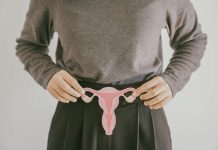What is the effect of pregnancy on young women’s ageing? A study led by researchers at Columbia University Mailman School of Public Health has revealed the connection between the two
The research, conducted in the Philippines among 1735 individuals, reveals insights into how pregnancy can quicken the ageing process, particularly among young women.
Assessing cellular ageing
The study, published in The Proceedings of the National Academy of Sciences, used DNA methylation (DNAm) analysis, known as ‘epigenetic clocks’, to assess cellular ageing.
This method allowed researchers to examine biological ageing in young women, uncovering previously unknown areas in understanding reproductive health impacts.
Dr Calen Ryan, the lead author and associate research scientist at the Columbia Ageing Center, emphasised the significance of their findings. “Our findings suggest that pregnancy speeds up biological ageing and that these effects are apparent in young, high-fertility women” stated Dr. Ryan.
Having a baby ages you more than smoking
What sets this research apart is its ability to track changes in biological age relative to the number of pregnancies women experience.
The study found that while women who reported pregnancies showed accelerated biological ageing, there was no similar effect observed among men in the same cohort.
This distinction shows the unique impact of pregnancy and breastfeeding on cellular ageing processes.
Dr. Ryan highlighted that the observed effects persisted even after accounting for various factors like socioeconomic status, smoking, and genetic variation. This implies that bearing children, rather than external influences, contributes significantly to biological ageing.
The study’s findings are particularly relevant given the age range of participants. Many pregnancies occur during late adolescence, a critical period of growth.
Long term health implications
The research team acknowledges that further investigation is needed to understand the long-term health implications of accelerated biological ageing due to pregnancy. “We still have a lot to learn about the role of pregnancy and other aspects of reproduction in the aging process,” explained Dr. Ryan.
The study’s co-authors, including researchers from Northwestern University, the University of British Columbia, and the USC-Office of Population Studies Foundation, highlight the global significance of these findings.
“Ultimately I think our findings highlight the potential long-term impacts of pregnancy on women’s health, and the importance of taking care of new parents, especially young mothers.” Ryan said.
The implications extend beyond academic curiosity. Dr. Ryan stressed the importance of supporting new parents, especially young mothers, given the potential long-term health impacts associated with pregnancy.
By showing how pregnancy can accelerate cellular ageing in young women, researchers are paving the way for a deeper understanding of women’s health across the lifespan.
Editor's Recommended Articles
-
Must Read >> Drinking during pregnancy changes baby’s brain
-
Must Read >> Pregnancy-specific anxiety














